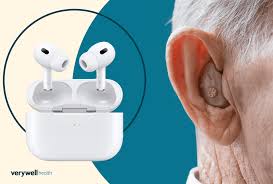 When Stephanie experienced a stroke on October 11, 2021, her life changed in an instant. She was a young, vibrant mother with a thriving career at Case Western Reserve University and suddenly left without the ability to speak.
When Stephanie experienced a stroke on October 11, 2021, her life changed in an instant. She was a young, vibrant mother with a thriving career at Case Western Reserve University and suddenly left without the ability to speak.
Ali and Stephanie
 When Stephanie experienced a stroke on October 11, 2021, her life changed in an instant. She was a young, vibrant mother with a thriving career at Case Western Reserve University and suddenly left without the ability to speak.
When Stephanie experienced a stroke on October 11, 2021, her life changed in an instant. She was a young, vibrant mother with a thriving career at Case Western Reserve University and suddenly left without the ability to speak.
Ali and Stephanie
Tags: Communication
At Cleveland Hearing & Speech Center (CHSC), we believe everyone deserves access to the resources they need to connect, learn, and belong. August is known as National Make a Will Month, which offers a special opportunity to ensure that commitment continues long into the future.
Tags: Communication, Communication Access, Donations, Donors, planned giving, Wills

As a Director of Audiology at Cleveland Hearing & Speech Center, I was not surprised when my brother, after reading a Wall Street Journal article, texted me “Are you worried that Apple’s AirPods Pro 2—with their new hearing aid feature—will negatively impact the hearing aid business?”
Tags: Hearing Aid, Communication, Hard of Hearing, Deafness
What is Vocal Hygiene?
Vocal hygiene is a term used to describe habits and routines used to support a healthy and strong voice. Just as good oral hygiene can help protect your teeth as you age, vocal hygiene can help you preserve a strong, resonant voice.
Vocal Hygiene Tips
1. Drink More Water: Try a minimum of eight 8 oz glasses of water or other noncaffeinated non-acidic beverage per day, avoid consumption of alcoholic beverages. (NOTE: please speak with your medical provider to ensure consumption of a higher volume of water will not impact any medications you are currently taking.)
Tags: Speech, Language, Communication, Voice, talking, Speech therapy
Many parents who have a child who is d/Deaf or hard of hearing (DHH) hope their child will learn to talk. These parents are often hesitant to introduce American Sign Language (ASL) into their home. They may worry that learning ASL will discourage their child from talking. However, a recent study published in the Journal of Speech, Language, and Hearing Research by Pontecorvo and colleagues* shows that this worry is not necessary. The study is titled Learning Sign Language Does Not Hinder Acquisition of a Spoken Language. This is a very important study because it found that learning ASL does not mean a child will not learn to talk!
The study is titled Learning Sign Language Does Not Hinder Acquisition of a Spoken Language. This is a very important study because it found that learning ASL does not mean a child will not learn to talk!
Tags: Speech, Communication, American Sign Language, ASL
Tags: Speech, Language, Communication, Support, Stroke, Caregiving, Brain Injury, talking, Communication Access, Speech therapy, Stroke recovery, Aphasia, Primary Progressive Aphasia
Many people are creating a will for the first time or reviewing and updating their will to ensure it meets their current circumstances.
Tags: Donations, Donors, planned giving, Wills
Those caring for adults with speech, language, and cognitive challenges serve an important role in the healthcare management team. These challenges may be a result of medical diagnoses such as dementia, stroke, and ALS, or occur independently. No matter the etiology, support is often necessary to help individuals reach their goals. Due to the nature of this role, we are beginning to shift our perspective on how to most effectively refer to these individuals: care partner vs. care giver.
Tags: Speech, Language, Communication, Support, Stroke, Caregiving, Brain Injury, talking, Speech therapy, Stroke recovery, Aphasia, Primary Progressive Aphasia
Mental Health includes our emotional, social, and psychological well-being. It affects how we think, feel and act. It also helps determine how we handle stress, relate and get along with others, and make good and healthy choices in our life.
Aphasia is a language disorder resulting from an injury to the brain, such as a stroke or head trauma. The outcome of aphasia varies significantly from person to person. The most predictive indicator of long-term recovery is initial aphasia severity, along with the lesion site (location of damage to the brain) and the size of the lesion
Tags: Language, Communication, Stroke, Caregiving, Brain Injury, talking, Communication Access, Speech therapy, Stroke recovery, Aphasia, Primary Progressive Aphasia
Receive CHSC news and events and other important communication updates directly to your inbox.

11635 Euclid Ave.
Cleveland, OH 44106
Voice: (216) 231-8787
Appt: (216) 325-7570
Fax: (216) 231-7141
info@chsc.org

© 2017 Cleveland Hearing & Speech Center. All rights reserved.